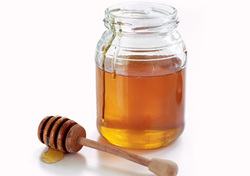
Are you feeling frustrated with the results you're getting in correcting and disciplining your children? I'm sure you've heard the old adage, you get more flies with honey? I think this is so true and when it comes to correcting and disciplining our children I think it would serve us all well to remember this.
I was surprised to see in my own adventures in parenting how easy and often it was for me to be critical of my children rather than complimentary or positive in my comments. It's not how I wanted to be toward my kids, in fact I wanted to be exactly the opposite, encouraging them, always building them up. When my kids were young there were so many areas where they would be doing great. But I would often be quicker to see those situations where they might be striking out rather than when they were hitting it out of the park. When I realized this I decided I was going to try my best to think of at least two positive or encouraging comments I could offer my kids with every critical comment I was about to give. It took some time for me to break the old habit of simply firing off a critical comment without also offering something encouraging and positive. It required me to stop and think before I spoke. I needed to be "quick to listen, slow to speak and slow to become angry".
As I began focusing on seeing and commenting on those things they were doing well the results were really amazing, not only did my kids respond better to the correction or discipline I was offering but I discovered I was finding less to correct them about. It was really working something in me and in them! So does that mean I never missed a chance to compliment my kids or never again corrected them without also giving them a positive comment as well? No, I still reacted in the moment and spoke without thinking at times but not as often and many times I would go back after the fact and correct that by adding those encouraging words as well. Words are powerful and will always leave of a mark of some kind. It's important for us as parents to understand this and to be thoughtful and purposeful in the words we choose to use with our children. Using honey instead of vinegar always attracts more flies or in this case better results in correction and discipline.
I hope these thoughts are helpful and encouraging for you and also a good resource I would like to recommend is The 5 Love Languages of Children by Dr. Gary Chapman and Ross Campbell.
I was surprised to see in my own adventures in parenting how easy and often it was for me to be critical of my children rather than complimentary or positive in my comments. It's not how I wanted to be toward my kids, in fact I wanted to be exactly the opposite, encouraging them, always building them up. When my kids were young there were so many areas where they would be doing great. But I would often be quicker to see those situations where they might be striking out rather than when they were hitting it out of the park. When I realized this I decided I was going to try my best to think of at least two positive or encouraging comments I could offer my kids with every critical comment I was about to give. It took some time for me to break the old habit of simply firing off a critical comment without also offering something encouraging and positive. It required me to stop and think before I spoke. I needed to be "quick to listen, slow to speak and slow to become angry".
As I began focusing on seeing and commenting on those things they were doing well the results were really amazing, not only did my kids respond better to the correction or discipline I was offering but I discovered I was finding less to correct them about. It was really working something in me and in them! So does that mean I never missed a chance to compliment my kids or never again corrected them without also giving them a positive comment as well? No, I still reacted in the moment and spoke without thinking at times but not as often and many times I would go back after the fact and correct that by adding those encouraging words as well. Words are powerful and will always leave of a mark of some kind. It's important for us as parents to understand this and to be thoughtful and purposeful in the words we choose to use with our children. Using honey instead of vinegar always attracts more flies or in this case better results in correction and discipline.
I hope these thoughts are helpful and encouraging for you and also a good resource I would like to recommend is The 5 Love Languages of Children by Dr. Gary Chapman and Ross Campbell.
 RSS Feed
RSS Feed